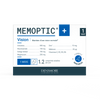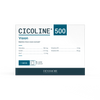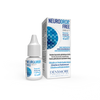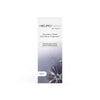Tips for successful breastfeeding

We often hear that breast milk is the best food for the development and growth of the newborn because it meets their specific needs from birth. The composition of breast milk cannot be matched by that of commercial infant formula. Exclusive breastfeeding until at least 6 months of age is also an official recommendation from the WHO (1) . The latter estimates that around 40% of babies between 0 and 6 months are breastfed. Without trying to convince at all costs, it is surely good to remember how breast milk offers health benefits to the baby, and that it is also beneficial for the mother. And for women who make this choice, here are detailed tips for successful breastfeeding.
The ideal composition of breast milk for the baby
The wonders of nature
The expression “nature is well made” has never taken on more meaning than to illustrate the perfect nutritional qualities of the milk produced by a breastfeeding woman. Already, during pregnancy, physiology is responsible for preparing the maternal body by automatically making energy reserves in anticipation of possible breastfeeding.
Nipple sucking stimulates milk production from the mammary gland. This is why breastfeeding must be done on demand, as much as the baby requires it.
Another example of the magic of the body, the composition of breast milk evolves as the child grows and adapts to his needs. It is only from this breast milk, during the first weeks, that the newborn gets all the nutrients he needs.
Perfect match to needs
The nutritional qualities of milk are perfectly consistent with the needs of the baby being fed. More than 200 elements have been identified which are part of the composition of breast milk. Antibodies, enzymes, hormones, growth factors and living cells cannot be integrated into the production of industrial milk.
As incredible as it is, breast milk offers the adequate content of proteins (non-allergenic, easy to absorb and digest), carbohydrates and lipids necessary for the development and structure of the body. This milk is also naturally concentrated in vitamins and minerals , particularly vitamin C or iron. Finally, breast milk contains excellent fatty acids , valuable for the establishment of fibers in the child's cerebral white matter, but also for their vision.
It is a very digestible milk for the child thanks to the enzymes it contains, facilitating the digestion of the newborn whose system is, in essence, still very immature.
The numerous and verified benefits of breastfeeding
An immune boost and short and long term benefits
Antibodies, produced by the mother and contained in her milk, help the breastfed baby to defend itself against certain bacteria and viruses.
A special mention must be made to colostrum , the first milk produced by the mother's breasts after the birth of her child. Indeed, this colostrum, very rich in antibodies and concentrated in proteins and nutrients, lines the walls of the newborn's digestive system and helps protect it from many common childhood illnesses (2) . Researchers believe it could also limit the risk of sudden infant death syndrome (3) . Finally, it would be a good ally for the prevention of overweight and obesity at a later age (4) .
An excellent nectar for the development of brain tissue
The development of brain tissue constitutes a crucial phase of child development . The brain doubles in size during the first year of life. When he comes into the world, the newborn has around 100 billion neurons: this is more than his capital for his entire life (since a certain number disappears physiologically in the first years). Beyond this gigantic number of neurons, it is above all the connections between them which will be essential and essential nutrients are necessary for this.
A 2018 study (5) showed that feeding a baby born prematurely with breast milk would benefit their brain connectivity , in other words the ability of their brain to develop neuronal connections.
Benefits also for the mother
Breastfeeding has a protective effect against breast (6) and ovarian (7) cancer, but also diabetes and cardiovascular diseases (8) .
Unlike artificial milk, breast milk does not require any particular organization or anticipation: it is always ready to consume and at the right temperature! A little extra boost, breastfeeding helps lose mom's stubborn pounds.
However, without putting pressure on yourself, it involves paying particular attention to the mother's daily diet. Just like during pregnancy, certain nutrients must be increased during breastfeeding. Of course, the body made reserves during pregnancy, but these will be insufficient over time because the baby's growth is exponential at the start of extra-uterine life.
What aspects of her diet should breastfeeding women pay attention to?
Rigorous hydration
Drinking well throughout the day is valuable advice. The principle is even based on drinking without waiting to feel thirsty. Milk production requires excellent hydration from the body. Water is the best liquid for your body, especially water that is well mineralized and rich in calcium and magnesium.
Healthy food and balanced diet
Some consensus has been established to indicate all dietary recommendations during breastfeeding (9).
Foods rich in protein should be part of the mother's plate (10). These macronutrients provide the basic foundation support for many organs. Likewise, lipids have an essential energy role and are part of the composition of all cells. Care must be taken to emphasize mono and especially polyunsaturated fatty acids of the omega-3 type.
An adequate maternal intake of calcium , the most abundant mineral in the body, will have a positive effect on the child's growth and bone development. The diet should be rich in dairy products and green leafy vegetables (such as cabbage), consumption of mineral waters rich in calcium.
Furthermore, this calcium intake is particularly important during breastfeeding due to the depletion of maternal calcium stores. This may involve a transient decrease in bone mineral density, which is undesirable. Calcium metabolism requires vitamin D.
Finally, due to their preponderant role in many physiological processes, iron , magnesium and iodine must also be provided in sufficient quantities.
Snacks
When you are breastfeeding, you automatically need an extra number of calories per day. It is said that overall it is 500 kcal more per day (10).
In the marathon day of a mother of a newborn, especially when she is breastfeeding, it is good to provide snacks. A small snack in the morning and another in the afternoon will be beneficial, provided of course that you don't take the opportunity to snack on anything...
Naturally promote lactation with plants
Fennel is known as a galactagogue plant, that is to say having a stimulating action on milk secretion. Fennel is also rich in calcium and antioxidants, like other plants used to support breastfeeding (fenugreek, caraway, galega, etc.). Beyond supporting the production of breast milk , fennel helps, as a bonus, with digestion and soothes colic in newborns (11).
When breastfeeding, and before taking supplements, it is always preferable to seek advice from a health professional trained in herbal medicine .
A specific food supplement to match intake with needs
Despite increased vigilance regarding nutrition during this breastfeeding period, the mother of a newborn or infant often has busy days. Taking a food supplement , the content of which has been studied to meet the specifications of your needs, constitutes a good option.
The ideal is that it contains at least omega-3 , vitamins from group B but also D, as well as minerals , valuable in the structure and development of the baby.
Breastfeeding often goes hand in hand with a significant phase of fatigue during which the immune system has every interest in being strengthened .
A sufficiently energetic and complete diet, significant hydration and the use of food supplements form a precious trio to benefit from all the virtues of successful breastfeeding.
Bibliographic references:
1. Breastfeeding [Internet]. [cited August 24, 2022]. Available at: https://www.who.int/en/health-topics/breastfeeding
2. Pribylova J, Krausova K, Kocourkova I, Rossmann P, Klimesova K, Kverka M, et al. Colostrum of healthy mothers contains broad spectrum of secretory IgA autoantibodies. J Clin Immunol. Dec 2012;32(6):1372‑80.
3. Vennemann MM, Bajanowski T, Brinkmann B, Jorch G, Yücesan K, Sauerland C, et al. Does breastfeeding reduce the risk of sudden infant death syndrome? Pediatrics. March 2009;123(3):e406-410.
4. Wang L, Collins C, Ratliff M, Xie B, Wang Y. Breastfeeding Reduces Childhood Obesity Risks. Child Obes Print. June 2017;13(3):197-204.
5. Blesa M, Sullivan G, Anblagan D, Telford EJ, Quigley AJ, Sparrow SA, et al. Early breast milk exposure modifies brain connectivity in preterm infants. NeuroImage. 1 Jan 2019;184:431‑9.
6. Collaborative Group on Hormonal Factors in Breast Cancer. Breast cancer and breastfeeding: collaborative reanalysis of individual data from 47 epidemiological studies in 30 countries, including 50,302 women with breast cancer and 96,973 women without the disease. Lancet Lond Engl. 20 Jul 2002;360(9328):187‑95.
7. Babic A, Sasamoto N, Rosner BA, Tworoger SS, Jordan SJ, Risch HA, et al. Association Between Breastfeeding and Ovarian Cancer Risk. JAMA Oncol. June 2020;6(6):e200421.
8. Ip S, Chung M, Raman G, Chew P, Magula N, DeVine D, et al. Breastfeeding and maternal and infant health outcomes in developed countries. Evid ReportTechnology Assess. Apr 2007;(153):1‑186.
9. National Agency for Accreditation and Evaluation in Health (ANAES). Acta Endosc. Apr 1998;28(2):151‑5.
10. Dewey K.G. Energy and Protein Requirements During Lactation. Annu Rev Nutr. 1997;17(1):19‑36.
11. Weizman Z, Alkrinawi S, Goldfarb D, Bitran C. Efficacy of herbal tea preparation in infantile colic. J Pediatr. Apr 1993;122(4):650‑2.
Share



